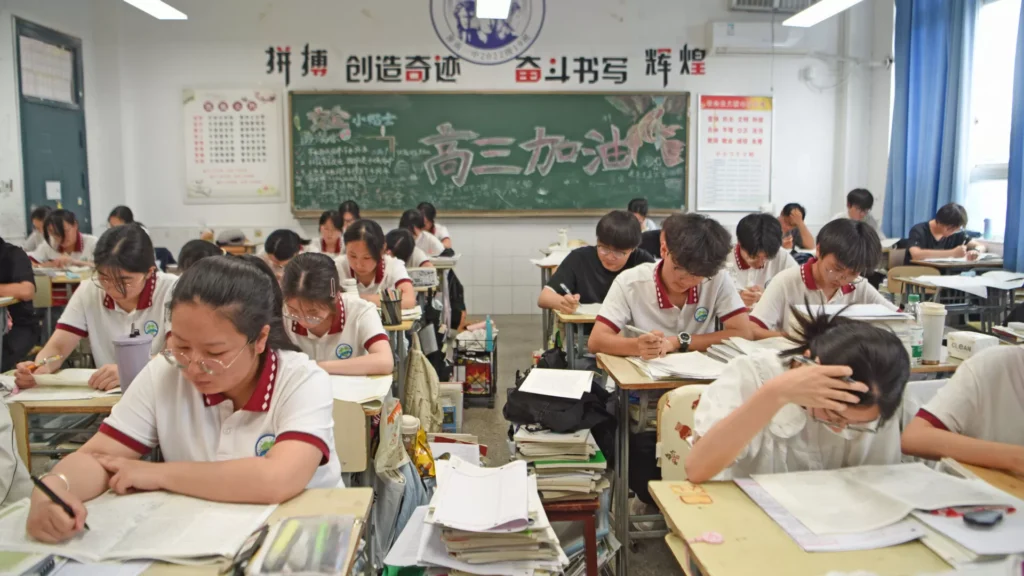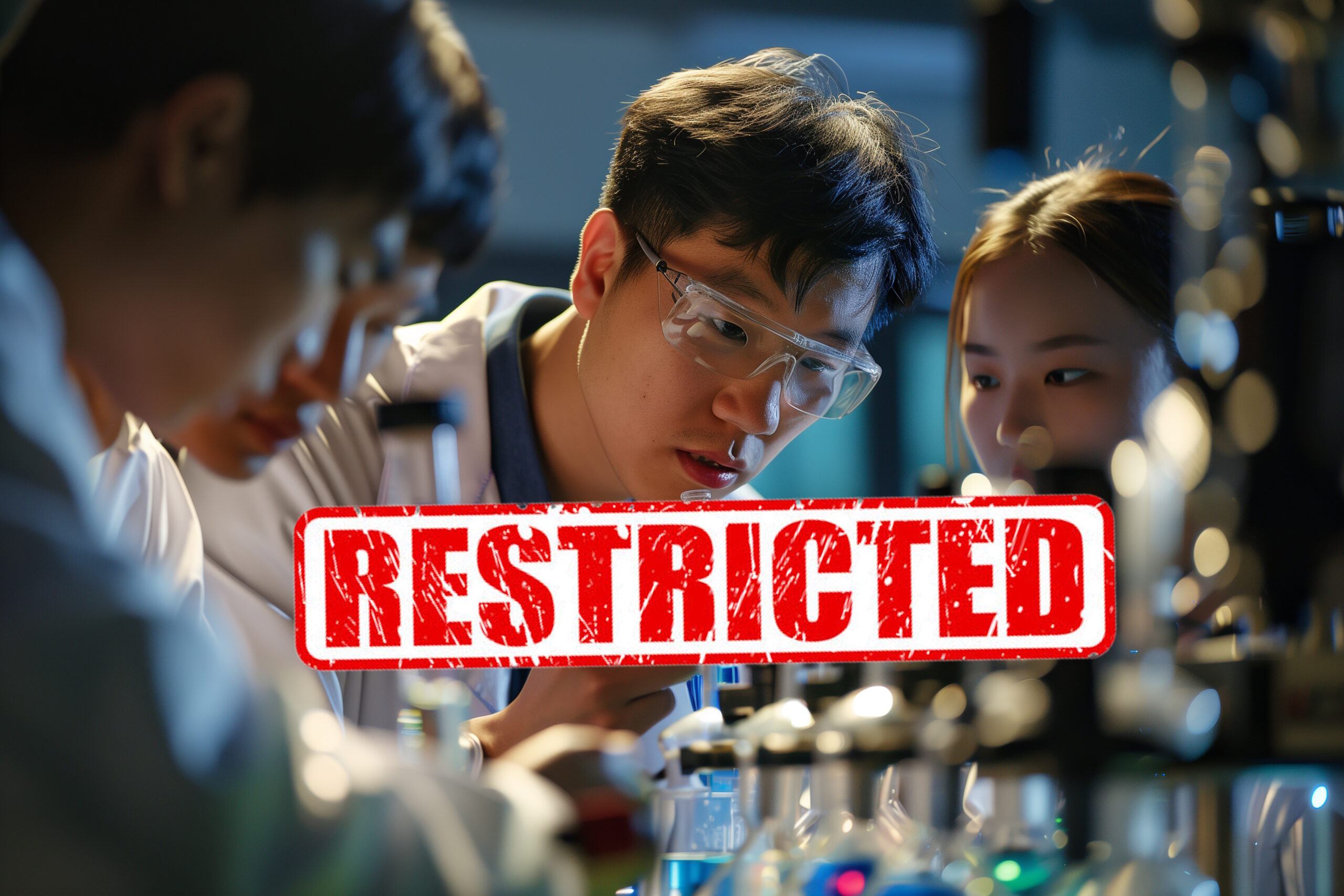U.S. Restricts Chinese Tech Researchers: In May 2025, the Trump administration intensified its stance on academic security. Secretary of State Marco Rubio launched an extensive effort to revoke visas of Chinese students and scholars. These individuals, many pursuing advanced studies in fields like artificial intelligence, synthetic biology, and semiconductors, suddenly found themselves under intense scrutiny. The administration claimed it aimed to block knowledge transfer to the Chinese Communist Party (CCP) (reason.com).
This move triggered alarm across the U.S. academic and scientific community. Officials labeled it a necessary step to protect national interests, while critics warned it could undermine American leadership in science and innovation.
Sad news for Chinese researchers, this crackdown limits academic growth and global collaboration. I offer guidance on alternative visa options.
Miler Michel
Summary
- U.S. restricts visas for Chinese students in AI, biotech, and other sensitive fields.
- Policy targets those suspected of CCP ties, sparking controversy.
- Major U.S. universities report research disruptions and legal action.
- As Beijing decries international interference, Canada and the UK extend support to exiled academics seeking refuge.
- Experts warn of long-term damage to U.S. academic and tech leadership.

Historical Roots & Policy Foundations
This crackdown builds on earlier policies. In 2020, former President Trump signed Proclamation 10043, which denied visas to students affiliated with Chinese military-linked institutions. The 2025 policy, however, vastly expands that framework. It targets any Chinese national suspected of CCP ties, regardless of their institution or research topic (fdd.org).
Consequently, students with no military background or direct political connections now face revocation. The policy blurs lines between national security and academic freedom.
Scope & Implementation
Who’s Targeted?
The new policy affects Chinese and Hong Kong nationals pursuing sensitive research. U.S. officials highlight fields like AI, biotech, advanced computing, and quantum physics. Applicants must prove no ties to the CCP, a standard that is extremely difficult to meet. (washingtonpost.com).
How It’s Enforced
U.S. embassies suspended student visa interviews from China and Hong Kong. Officials have begun enhanced screening, including social media reviews and academic history checks. Visa revocations already impact dozens of students. Additionally, the Department of Homeland Security (DHS) plans to review current visa holders and initiate removal proceedings if necessary (Washington Post).
Immediate Fallout & Student Reactions
Students report high anxiety and confusion. Many face disruptions in their research, degree programs, and career plans. A student at Stanford said, “One day I was in the lab, the next day I was packing.”
Universities scrambled to respond. Some prepared legal appeals, others issued public statements defending their students. Several schools reported delays in ongoing projects due to the sudden loss of researchers (usnews.com).
Academic & Institutional Impact
Universities Hit Hard
Chinese students contribute significantly to U.S. higher education. In 2023-24, over 277,000 studied in the U.S., most in STEM fields. Their tuition supports graduate programs and research initiatives.
The crackdown now threatens those financial pipelines. Harvard, MIT, and Stanford have all warned of long-term consequences if the trend continues. As expected, institutions are already seeing enrollment declines.
Legal Resistance
Several universities have filed lawsuits. Harvard secured a temporary restraining order to block the policy from affecting its students. However, courts remain cautious. They emphasize the discretionary power of visa officers, complicating institutional challenges.
Academic groups like AAUP and MESA strongly condemned the visa crackdown. They argue that it undermines academic freedom and invites discrimination.
Geopolitical Ramifications
Strained Relations with China
Beijing responded sharply. Chinese officials called the visa actions a breach of recent diplomatic agreements. The Chinese government threatened reciprocal restrictions on American scholars (Bloomberg).
This policy shift could collapse decades of academic cooperation. American scientists often collaborate with Chinese labs, especially in cutting-edge tech. Those projects now hang in the balance.
Competitive Disadvantage
Other nations are welcoming displaced Chinese scholars. Canada, the UK, Australia, and Singapore are offering expedited academic visas. These countries view the U.S. crackdown as an opportunity to attract talent (Wired).
If top researchers choose other destinations, U.S. tech leadership could weaken. Innovation thrives on international collaboration—a truth many policymakers overlook.
Human Dimensions
The Personal Cost
Beyond research disruptions, students suffer emotionally. The crackdown impacts their mental health, stability, and long-term prospects. Many fear returning to China due to the stigma of failed studies abroad.
Families are also affected. Some parents spent life savings to support overseas education. Now, they face financial and emotional loss.
Career Detours
Many students are pivoting. Some are applying to schools in Europe or Asia. Some researchers are changing their fields to steer clear of targeted areas.
Economic & Innovation Consequences
Research Slowdown
Chinese graduate students account for 16% of the U.S. STEM research workforce. Losing them slows projects, disrupts labs, and diminishes innovation (wired.com).
Federal funding agencies report delays in grant deliverables. University departments report increased pressure on remaining researchers.
Declining Enrollment
Applications from China dropped sharply. University admissions offices say students are now choosing Canada or the UK instead. If this trend continues, it will reshape international education patterns.
Shift in Scientific Leadership
By targeting Chinese scholars, the U.S. risks weakening its global academic influence. The scientific community needs openness. Policies that restrict entry based on nationality jeopardize that principle.
Long-Term Outlook
New visa protocols remain under development. The State Department is actively developing detailed vetting criteria. Until finalized, embassies will delay most Chinese student interviews.
Meanwhile, lawsuits and political pressure may force revisions. Universities and business leaders warn the policy could isolate the U.S. academically and economically.
Congress may intervene. Some lawmakers push for balanced reforms that address security without harming research. Others support the crackdown, citing espionage concerns.
Conclusion
The 2025 U.S. crackdown on Chinese students marks a major turning point in academic and immigration policy. It shifts from narrow national security measures to broad academic exclusion. Though aimed at protecting American interests, it risks damaging the very institutions it seeks to defend.
Students lose opportunities. Universities lose talent. America loses ground.
If left unchecked, this policy could redefine global education. The U.S., once the premier destination for science and innovation, may find itself on the sidelines of a new world order in research and collaboration.
🔍 Key Takeaways
| Area | Potential Impact |
|---|---|
| Students & Researchers | Heightened fear, disrupted careers, and shifts to alternative countries |
| Universities | Enrollment decline, lost income, research project interruptions |
| Research & Industry | Weakened U.S. leadership in AI, semiconductors, biotech |
| Diplomacy | Fractured U.S.–China educational cooperation; retaliatory risk |
| Policy Landscape | Judiciary and congressional clarity pending; administrative discretion remains broad |
For expert help through every step of the process, please contact Eden Recruitments for a personalized consultation and make your visa journey smoother and faster.




